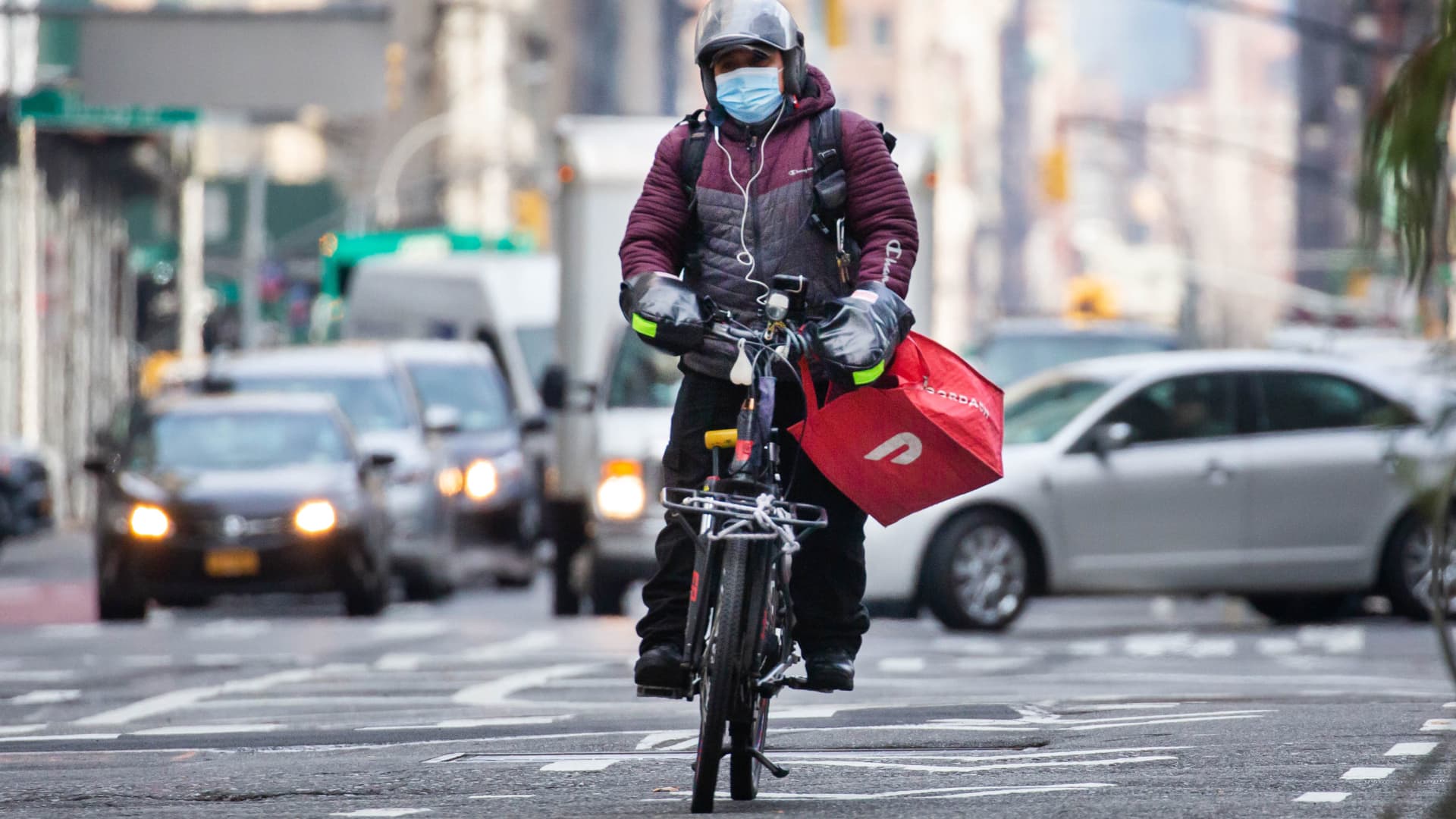
A bike messenger carries a DoorDash bag during a delivery in New York, Wednesday, Dec. 9, 2020.
Michael Nagle | Bloomberg | Getty Images
Shares of DoorDash popped more than 14% in extended trading Thursday after the food delivery company posted better-than-expected sales and total orders in the third quarter.
Here’s how the company did:
- Loss per share: 77 cents vs. 60 cents, as expected by analysts, according to Refinitiv
- Revenue: $1.7 billion vs. $1.63 billion, as expected by analysts, according to Refinitiv
DoorDash said the total number of orders it delivered in the third quarter rose 27% to 439 million, which topped Wall Street’s expectations of 433 million orders, according to StreetAccount.
However, its net loss widened to $295 million, or a loss of 77 cents per share. It reported a net loss of $101 million, or a loss of 30 cents per share, in the year-ago period.
The solid order numbers defy concerns of a slowdown in food deliveries, as historic levels of inflation hit consumers’ wallets. Some restaurant chains have reported weaker sales or declining traffic in recent months, suggesting consumers may not be dining out as much in order to save money.
DoorDash said it anticipates the strength of consumer spending to be consistent throughout the rest of the year. For the current quarter, it forecast gross order value to be between $13.9 billion and $14.2 billion, which is higher than consensus estimates of $13.73 billion, according to StreetAccount. That’s also an increase from the third quarter, when gross order value jumped 30% year-over-year to $13.5 billion. Gross order value measures how much users are spending on orders and subscription fees.
The company said it expects adjusted EBITDA between $85 million and $120 million during the fourth quarter.




